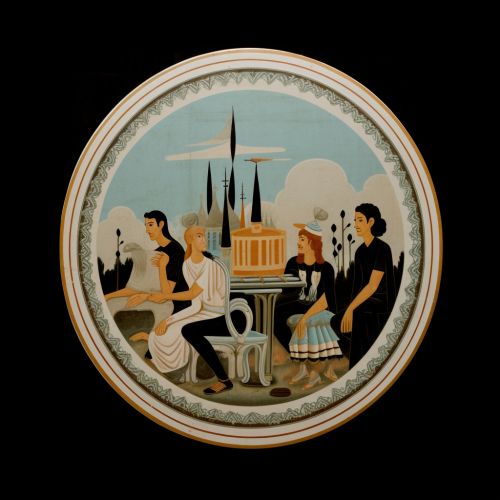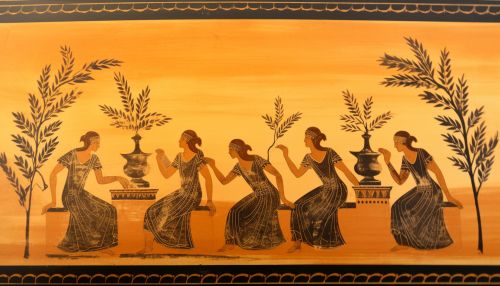Panathenaia
Origins and History
The Panathenaia was an ancient and significant festival celebrated in the city of Athens in Ancient Greece. The festival was held in honor of the goddess Athena, the city's patron deity, and its name translates to "All of Athena's." The Panathenaia was a central part of Athenian life, involving athletic competitions, musical contests, and religious ceremonies.


The origins of the Panathenaia are somewhat obscure, but it is believed to have been established by the mythical king Erechtheus. The festival was initially held every four years, but from the 6th century BC onwards, a smaller version of the festival, known as the Lesser Panathenaia, was held annually.
The Greater and Lesser Panathenaia
The Panathenaia was divided into the Greater Panathenaia, held every four years, and the Lesser Panathenaia, held annually. The Greater Panathenaia was a more elaborate event, featuring athletic and musical competitions, horse and chariot races, and a grand procession. The Lesser Panathenaia was a more modest event, primarily focused on religious ceremonies.
Athletic and Musical Competitions
The athletic and musical competitions were a major part of the Panathenaia. These competitions were open to all male Athenians and included events such as foot races, wrestling, boxing, pankration (a form of martial arts), pentathlon, and various musical contests. The winners of these competitions were awarded with amphorae filled with olive oil from the sacred olive trees of Athena.
The Panathenaic Procession
One of the most significant aspects of the Panathenaia was the Panathenaic Procession, a grand parade that traversed the city of Athens. The procession was a religious ceremony that involved the entire Athenian population and culminated in the presentation of a new peplos (a type of garment) to the statue of Athena on the Acropolis.
Influence and Legacy
The Panathenaia had a profound influence on Athenian culture and society. It was a major social event that brought the Athenian community together and reinforced social bonds. The festival also played a significant role in the development of Athenian democracy, as it provided a platform for public discourse and political debate. The Panathenaia continued to be celebrated well into the Roman period and its legacy can still be seen in modern celebrations of Athena in Athens today.
